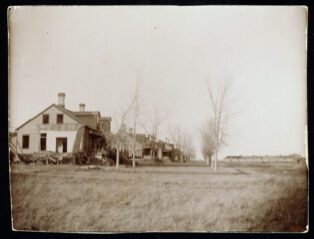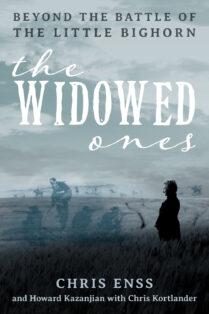Enter now to win a copy of
The Widowed Ones: Beyond the Battle of the Little Bighorn

While Elizabeth and the other widows were preparing for their moves from Fort Lincoln, reporters were swarming around the home of the Custer men. All were hoping for a statement about the charge circulating in Washington, D. C., and in many newspapers that Custer’s ego and desire for fame had placed his men in danger, men that would have blindly followed him anywhere, and ultimately cost them their lives.
“They should not have said so,” the distressed Reverend Custer stated. “I am his father, and shouldn’t a father know the characteristics of his own son? He was neither proud nor vain. He fought to whip and not for praise. He was not reckless. He had much to live for, and he would not throw his life away. They shouldn’t have said so.”
When newspapers carrying the reverend’s comments reached the post, Elizabeth and the other widows were upset. The insinuation that Custer was impetuous and reckless and that those officers who served with him were incapable of independent thought was infuriating and disrespectful to the memory of their late husbands. The officers’ widows occasionally gathered on the porch of the Custers’ home to discuss the way the press was reporting on the tragic event. Weeks after the battle, none of the women had been told the specifics of the deaths of their spouses. No military official who had that information considered it necessary to share. It was determined by the post commander that Eliza Porter did not need to know just yet that her husband James’ body had been horribly mutilated and that his head had not been recovered. For the time, Grace Harrington, one of the officers’ widows at Fort Rice, was spared the news that her husband Henry’s body could not be identified and was presumed missing. Nettie Smith had no idea her husband Algernon had been wounded prior to the final battle on what would become known as Last Stand Hill. Molly McIntosh did not know her husband Donald was wrestled from his saddle and tomahawked to death, then dragged to the riverbank and scalped from forehead to neck. Maggie Calhoun and Annie Yates were unaware the bodies of their husbands, James and George, were badly decomposed by the time they were buried in a shallow grave. Elizabeth had yet to know that Custer suffered several gunshot wounds, including one to the left temple.


